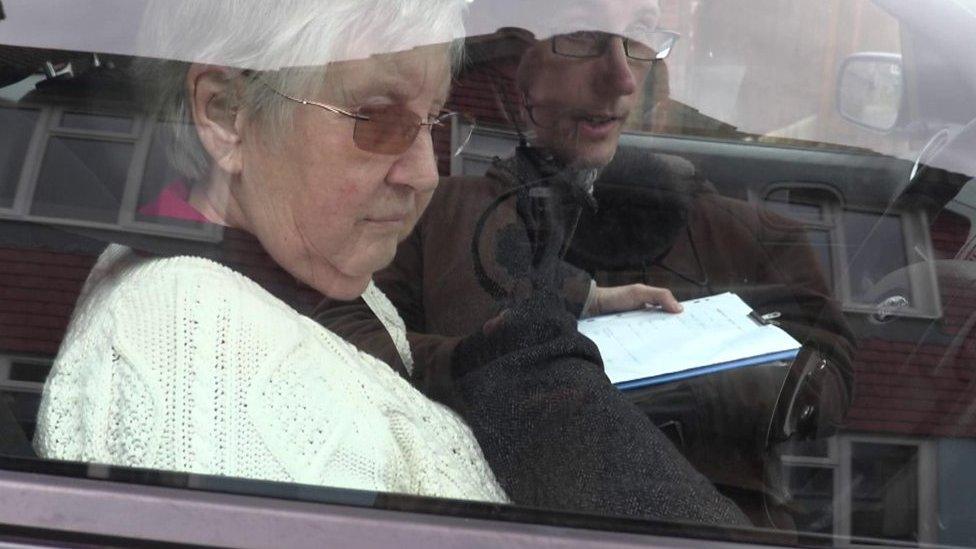Disabled drivers face long wait for lessons
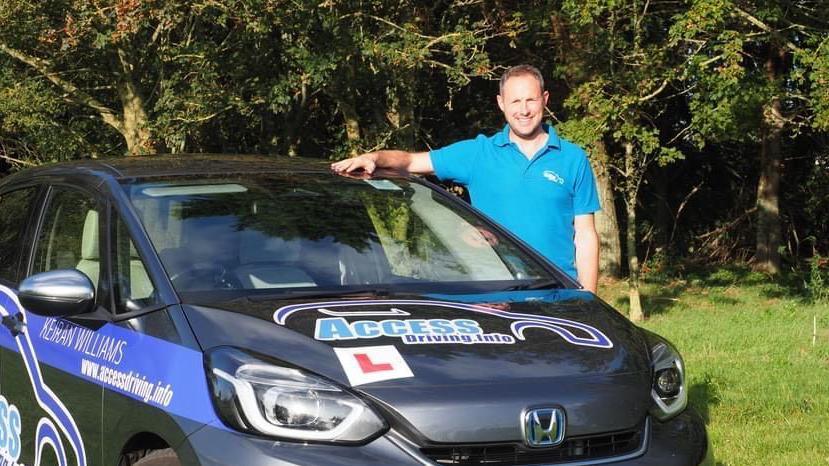
Keiran Williams said adapting cars in order to teach drivers with disabilities could be costly
- Published
Learner drivers with disabilities face a long wait for lessons due to a lack of specially-adapted cars.
Keiran Williams, of Soham, Cambridgeshire, is the county's only known instructor with an adapted car registered with the Association of Disability Driving Instructors (ADDI).
He said students who needed lessons in the car faced a wait of up to a year.
Warren Kirwan, of disability charity Scope, said: "It’s shameful that so many disabled people are being prevented from learning to drive."
Mr Williams said the cost of adaptions could be a barrier for some instructors.
He said a lack of knowledge and the need for training were also potential barriers.
"There's a huge need in Cambridgeshire. We could easily have two or three more instructors... it would make the lives of everyone who needs this specialist support so much better," he said.
He recommends disabled people wanting to drive research what adaptations they may need by using the Driving Mobility, external website and find an instructor well in advance.
John Rogers founded ADDI after realising there was "a need not being met".
However, he said undertaking the relevant training could mean instructors missed out on days of teaching, losing income.
"The instructors who go the extra mile to make this happen, do so because they want to help people," he said.
"They go home at night feeling like they've made a real difference to someone's life."
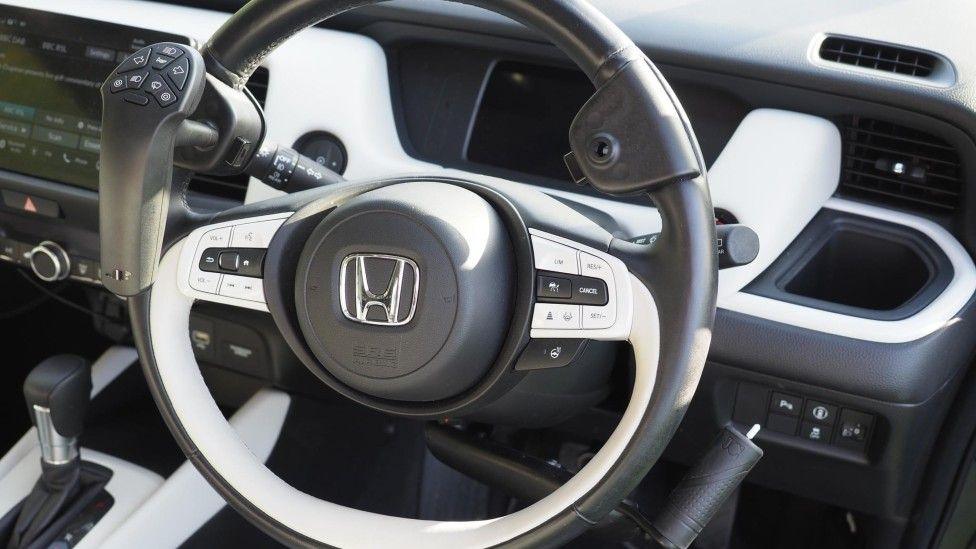
Mr Williams says there are long waiting times for instructors who can cater for people needing adapted learner cars
Harriet Little had to learn to drive in her own specially-adapted car, passing her test last year.
She used to live on the Isle of Wight where no instructors were available to teach her, and felt "lucky" to have found one in Peterborough.
"I think there is a gap in the market where we're failing the disabled youngsters who want to learn and just want to be like everybody else, and yet again we are putting their disability before their ability," she said.
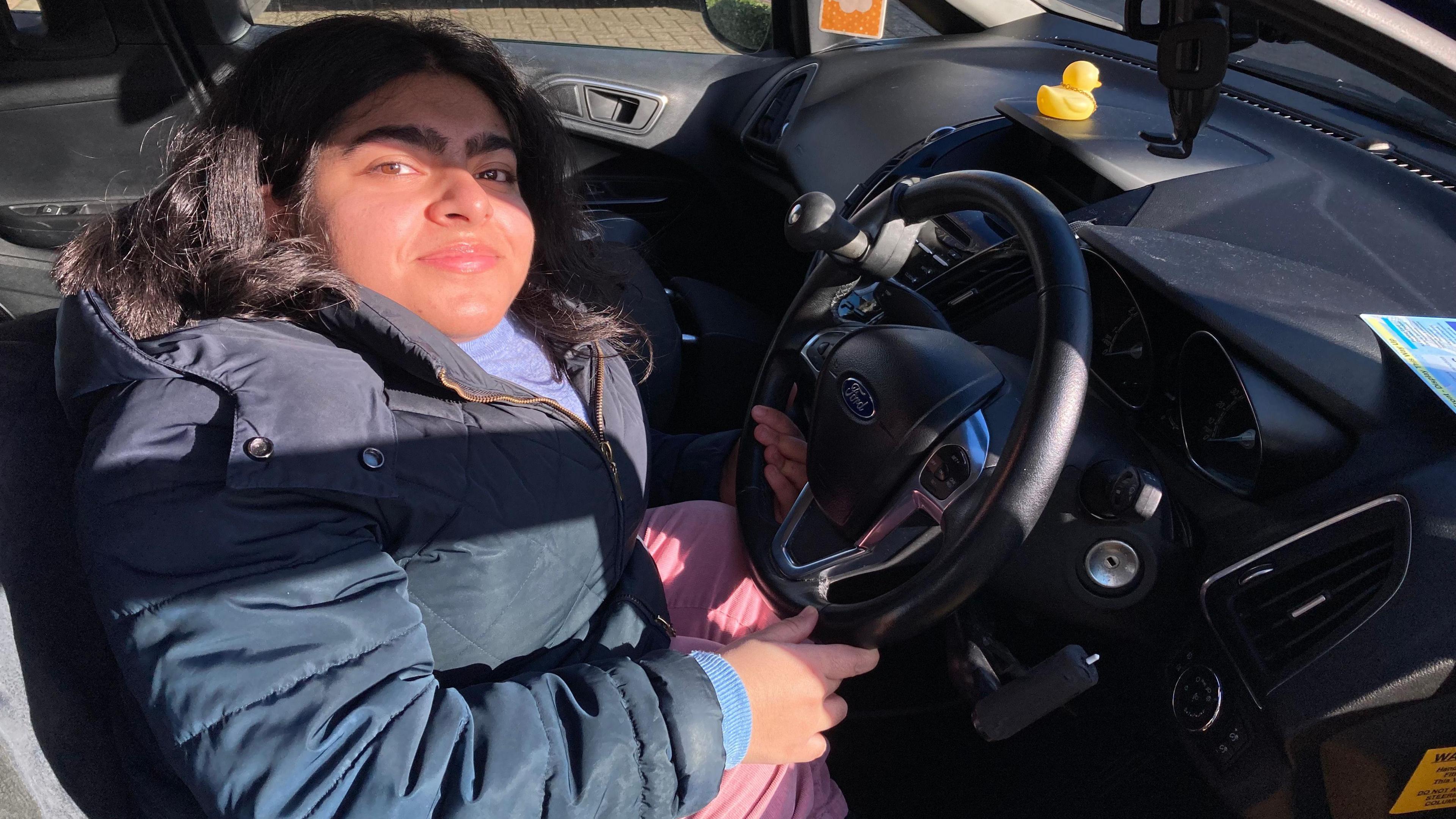
Iqra Saeed has had her car adapted, including a push-pull system to steer, brake and accelerate
Iqra Saeed, who learnt to drive seven or eight years ago, said her car looked "inconspicuous" but had hand controls fitted so she could drive independently.
She explained that the accelerator and brake were built into one hand control.
Mr Kirwan, of Scope, said: "Driving is a lifeline for many disabled people to get to work, the supermarket or hospital appointments.
"For many, it’s the only option to travel because much of our public transport system is still inaccessible.
"We'd urge driving schools to make sure they are catering for disabled drivers by providing disability-inclusive training to their instructors and offering adapted vehicles."
Ezra Johnson, of charity Transport for All, urged the government and local authorities to "do more to ensure that every disabled person who wants to learn to drive is able to do so".
Follow East of England news on Facebook, external, Instagram, external and X, external. Got a story? Email eastofenglandnews@bbc.co.uk, external or WhatsApp us on 0800 169 1830
- Published11 January 2021
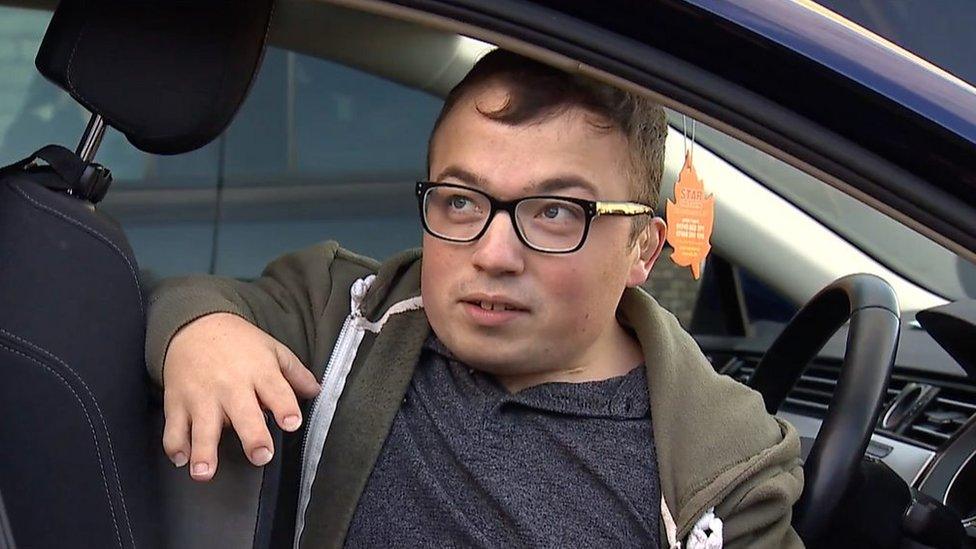
- Published11 April 2018
